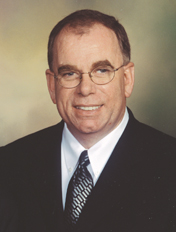
If you are a skilled care operator, it might seem as if a big target has been placed squarely on your back.
In recent weeks, we have seen several developments that could make providers feel like they are being singled out. Consider:
- CMS unveiled several new home- and community-based grant projects, with the intended goal of keeping nursing home-eligible people out of your facilities.
- Med Pac called for additional funding for the PACE program, which has a similar purpose.
- A Kaiser repot noted that long-term care facilities might face huge cuts if the Supreme Court invalidates the Affordable Care Act since states would have more leeway in Medicaid funding.
But wait, there’s more.
Last week, the American Health Care Association sent a letter to CMS that makes a pretty serious allegation: the government is using Medicare audits to reduce high-intensity therapy. This is being done by having the agency’s Zone Program Integrity Contractors target buildings that exceed designated limits. The AHCA’s correspondence calls the alleged practice “stealth policymaking without the benefit of dialogue with stakeholders.”
Is this a good time to add that a reimbursement-raising therapy cap extension put in place this spring is scheduled to expire at the end of the year?
For many long-time operators, the likely response to these and other career-threatening developments will likely be little more than a shrug. After all, long-term care has been an easy target for decades. That’s partly because most people outside the field generally don’t hold facilities in especially high regard. (And to be fair, that is often the case for good reason.) It’s also partly happening because states and the federal government are going broke. Under the circumstances, a certain amount of belt tightening is to be expected. And it’s partly because the industry still needs to do a better job of telling its story.
There’s an old joke that goes something like this: People don’t like lawyers, cops or nursing homes, until they need them. If nursing homes are so undesirable – as so many of the ongoing efforts to limit their continued existence would seem to suggest – why are more than a million people receiving care in them each year?
This is a vital, important field that does incredible work every day. The sooner the larger public realizes this, the sooner the targets will start being removed.




